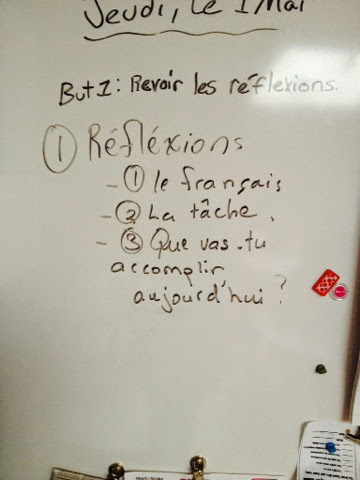With a set up from an amazing team by our department and differentiating the needs for the participants. It was a landscape of exploration focusing on the process and how tools enhance students' thinking.
#ocsb #plocsb #edcampocsn lots of sessions across #GAPPS #documenting #learning #coding @BrendaWocsb pic.twitter.com/USau9VfpDQ— Rola Tibshirani (@rolat) May 23, 2015
Learning along #ocsbedcamp #ocsb #plocsb @OCSBelementary @BrendaWocsb leveraging technology on Saturday morning pic.twitter.com/hjpXKc0OzU— Rola Tibshirani (@rolat) May 23, 2015
The inspiration started from the opening of the edcamp, that learning does not stop in June! June is an opportunity for teachers to continue exploring and try tools to enhance students' thinking. Give students and teachers a chance to continue learning alongside each other, try new explorations with a purpose to be comfortable and set new learning to further apply in September. It is also a time to continue taking risks alongside our students who are our coaches for feedback of evidence of learning.
The first session was on coding. An eager group who not only wanted to learn coding, also to be able to apply to students thinking supporting curriculum expectations. I was so excited to be among this group of teachers from middle school and high school who wanted to roll these ideas today with the students. We finished our discussion about the importance of tapping into the students and take their expertise with the coding process. To reach thinking and learning, teachers need to scaffold the reflections throughout the designing of coding and to have students share, reflect and build on each others learning. A document was created and shared with links from online sources and connecting to communities in Ottawa. http://code.org/learn http://code.org/learn
http://www.smokelabs.net/ https://www.raspberrypi.org/
The second session so motivating with a large number of educators who had an interest in the Makerspace from a classroom to school wide. It is exciting to connect and share a vision of ideas and innovations. Many communities in Ottawa could be reached for support as well online from around the world. Thanks to Lisa Brennen for taking notes.
#ocsb #ocsbedcamp Rick Alexanderson #makered make sure to learn with ur Ss tools have reasons free 2 @BrendaWocsb pic.twitter.com/Q60z29fnvb— Rola Tibshirani (@rolat) May 23, 2015
— Rola Tibshirani (@rolat) May 23, 2015
At the last session a full room of educators interested in exploring documentation for learning. The group was separated in order to differentiate the exploration. The room was buzzing with so many questions, so much sharing and so many happy celebrations at solving ideas from all levels.
I shared an example on how I observe and document in Junior by using a Google form while students are at task and how I use the add on Save as a Doc to view responses from Google spreadsheet to a Google document. https://goo.gl/FrDcuu
Bill shared Hapara and accessibility for assessment, sharing GAPPS, viewing students' learning tasks and organizing folders.
Primary teachers explored how to upload videos and photos onto drive from the iPad. During the session with a small group of primary teachers we explored using blogger for documentation.
All teachers had many ideas to share and reflect on with others. Even when the session was over teachers continued sharing in groups. With a team of teachers, I shared Kaizena for feedback and documentation of learning https://kaizena.com/ for students' accountability. Snagit from TechSmith https://goo.gl/RkWR40 and Screencastify https://goo.gl/su66JK for students' ownership of learning documenting and explaining their thinking.
A great learning opportunity took place yesterday with conversations of learning and for learning. It was hands on for learning and sharing. As educators for us to continue exploring and learning, it will take a team of collaboration from colleagues and from our students.
What will be your next learning adventure?









